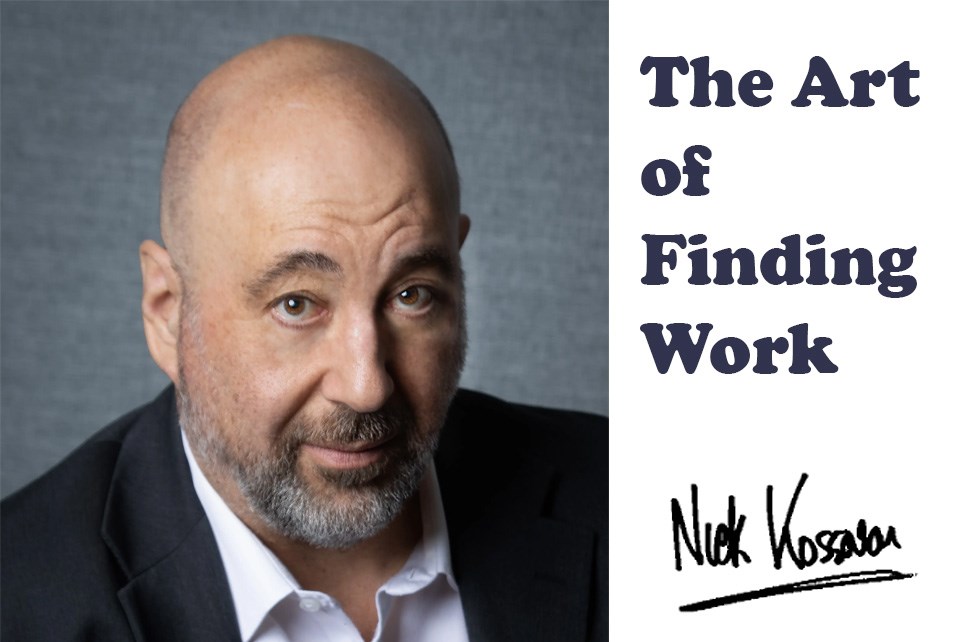An effective way to shorten your job search is to leverage the fundamental psychological principle — a game-changing lifehack — that most people overlook when trying to form a relationship, whether during job hunting, aspiring to climb the corporate ladder, seeking new friends, networking, or looking for that "special someone": If you want someone (read: an employer) to be interested in you, first be interested in them. Showing interest in someone is a massive gesture that makes you stand out; this is particularly true during interviews, where the goal is to establish a connection with your interviewer.
When expressing interest in someone — an employer — a key consideration is focusing your communication on how you can contribute to their success. This approach will make you memorable, which is what you should strive for, as it contrasts with most job seekers, whose sense of entitlement has them primarily focused on their wants. Job seekers who are "what's in it for me" focused tend to struggle with their job search.
Focus on "What Can I Do for You?"
A hiring manager's primary concern is how the candidate can help the business. Therefore, distinguishing yourself from competitors, who are likely "me" focused, is as simple as demonstrating to employers the quantitative results you've achieved in your previous roles and how you intend to attain similar results. In 2025, your entire job search should focus on showcasing your past achievements that demonstrate your ability to either generate revenue or solve problems that hinder revenue.
Can you answer the question savvy interviewers ask: "Tell me how you brought value to your most recent position."?
- "I led a software implementation project that was completed on time and under budget by $35,000."
- "By calling dormant accounts that hadn't made a purchase in over two years with a one-time offer, I resurrected over 200 accounts, generating $850,000 in revenue."
- "My hunger to achieve my monthly sales quota motivated me to make at least 40% of my calls before or after traditional business hours when decision-makers were most likely to answer their phones. This calling strategy resulted in a significantly higher connection rate, enabling me to exceed my monthly sales quota for 34 consecutive months."
Being different is better than "being better"
Stop trying to be "the best-qualified candidate." Remember, you're striving to be memorable. Solely highlighting your qualifications and experience, especially without numerical evidence, is a surefire way to blend in with every other candidate.
American psychologist Dr. Robert Cialdini asserts, "To be persuasive, you need to be unique." Determine ways to present yourself to employers that will make you stand out. Often, just doing the basics that few job seekers do, such as creating a results-oriented resume and LinkedIn profile, including a compelling cover letter that sells as the ideal candidate for the position (not including a cover letter is lazy), and sending a post-interview thank you note to reinforce why you're the 'must-have' candidate, really well will make your stand out from those you're competing against.
Job seekers, now more than ever, need to bring a fresh perspective to their applications.
Social proof helps establish trust
Catherine Sanderson, Professor of Psychology at Amherst College, notes, "People are influenced by what others think. Social proof can be a powerful motivator."
Your interviewer is a stranger; best-case scenario, you're a referral, thereby sharing a "we know the same person" connection. Unsurprisingly, since they're hiring strangers, hiring managers ask themselves: "Can I trust this person?"
The foundation of any successful relationship is trust. A crucial step in establishing trust is demonstrating credibility. Today, the most effective way to establish credibility is by taking advantage of social media platforms — LinkedIn being the most obvious — to provide social proof.
Post screenshots of your successes, include recommendations from previous bosses and share client success stories. Establish your credibility! If you've worked with well-known companies and brands, mention them to foster a reputation for trustworthiness and competence. Employers are more likely to trust you when they see that a reputable company has hired (read: trusted) you.
Fear of missing out (FOMO) motivates
We all want what others have. A job search tactic I've successfully used several times is to create a perception of scarcity — that I'm in high demand. The perception that you have other options makes recruiters and hiring managers move faster. Being interested in you is good, but being concerned about losing you to a competitor is even better.
If you're in contact with several companies, even if you haven't reached the interview stage, mention it subtly. "I'm excited about several opportunities right now" conveys value without being overly boastful. Using this tactic frequently (no guarantee) encourages the employer to act quickly to hire you.
Reciprocity is powerful
"There is one word which may serve as a rule of practice for all one's life - reciprocity." - Confucius.
The act of giving fosters social connections while positioning you as a valuable resource, thus enhancing your visibility and desirability. Do what most job seekers don't do: share industry insights, write informative posts, or comment thoughtfully on hiring managers' posts. The more you give, the more people will remember you, which, in turn, facilitates striving to be a memorable candidate.
Nick Kossovan, a well-seasoned corporate veteran, offers “unsweetened” job search advice. Send Nick your job search questions to [email protected].
The commentaries offered on SaskToday.ca are intended to provide thought-provoking material for our readers. The opinions expressed are those of the authors. Contributors' articles or letters do not necessarily reflect the opinion of any SaskToday.ca staff.




